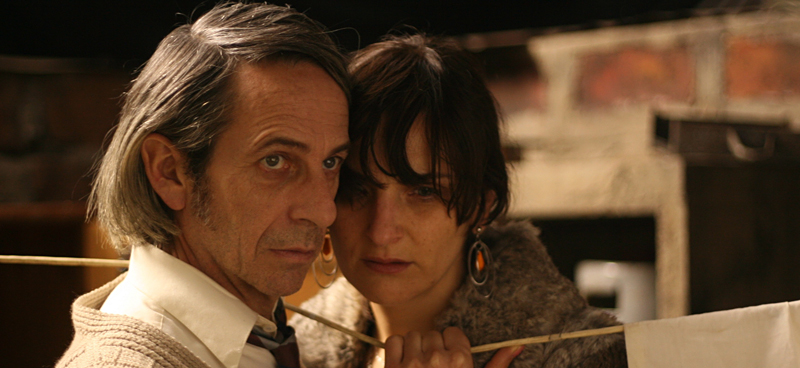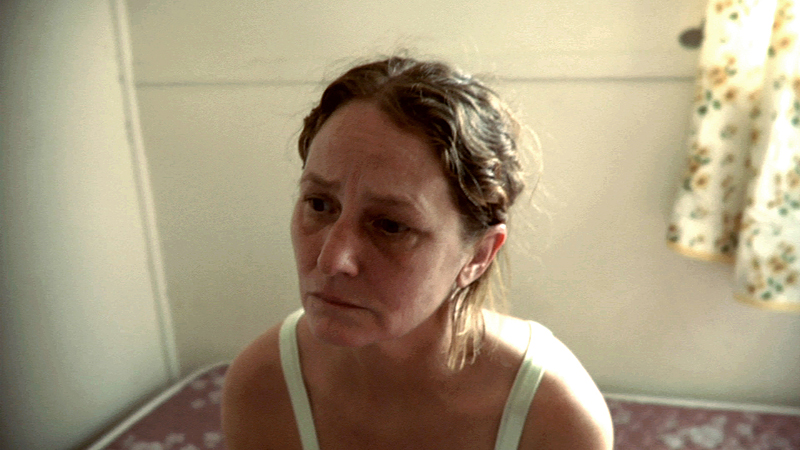“Nobody can escape the wheel of history,” a physician says in Pablo Larraín’s devastating follow-up to Tony Manero (2008). That film, a black comedy about a disco-crazed sociopath, unfolds in late-’70s, Pinochet-ruled Chile. Post Mortem is set during the onset of the Pinochet-led coup against the nation’s socialist government in 1973, and it’s filled not just with corpses but also the living dead. Pallid, skeletal Mario (Alfredo Castro), a coroner’s assistant at a hospital, seems to be little more than a spectral voyeur. He is obsessed with Nancy (Antonia Zegers), the cabaret performer who lives across the street. The obliviousness and complete lack of regard shown by Mario for anything other than the delusion that the showgirl will agree to be his bride is relayed when he fails to see or hear the coup—gunshots, bombs—while in the shower. Bloodied bodies are piled up everywhere at Mario’s hospital, though one lies on a dissecting table: that of President Salvador Allende. The functionary, tasked with recording the official autopsy of the leader, would seem now to be a player in world history—a short-lived stint, as Mario has difficulty operating the electric typewriter. Often drolly, coolly morbid, Post Mortem also operates just as effectively in a more nakedly direct register. The crack-up of a colleague of Mario’s, breaking down at the sight of the endless cadavers at her feet, finds its malevolent opposite in Mario’s reaction to a perceived betrayal—in which he proves as barbarous as the regime he’s now living under.
Post Mortem: A Harrowing Drama of Pinochet-Era Chile








